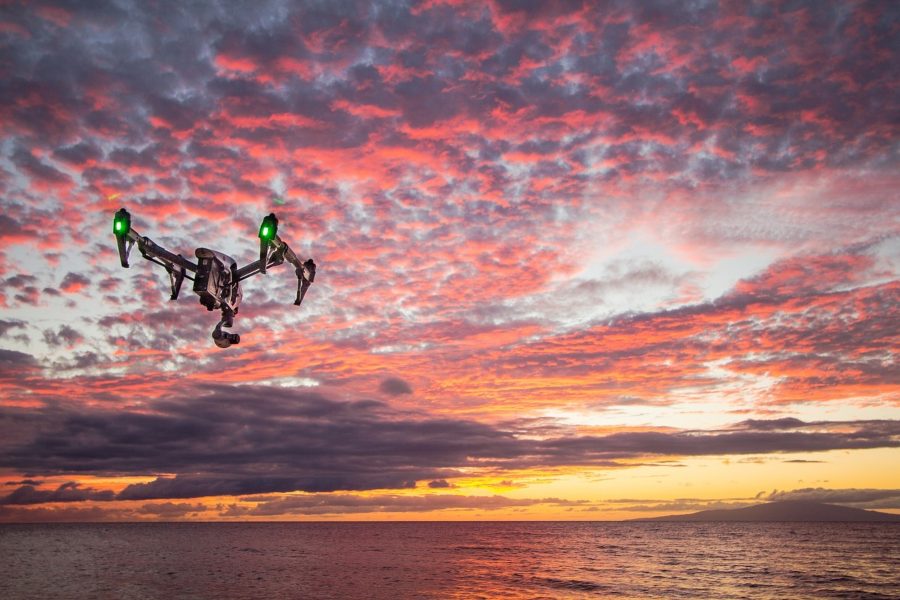Is It Illegal to Use Your Drone to Film Your Neighbors Doing Something Illegal?
BY Zacc Dukowitz
11 October 2022A couple in the town of Berkeley, Massachusetts is threatening to sue their neighbors for criminal harassment for shooting footage of their property with a drone.
The catch?
The couple had been illegally running motocross races on their property—and the drone footage was shot as evidence.
According to neighbors, including those who shot the footage, the motocross races had drawn big crowds, creating large clouds of dust, lots of noise, and making for a general nuisance in the area.
How It Came to This
Before neighbors shot the drone footage of the motocross races, the city had already ordered the couple to stop hosting dirt bike events.
Last year, council members in Berkeley heard testimony from Angela and Michael Ricardo, the couple that host the motocross races. The Ricardos acknowledged that they were using their land for dirt bike races and training, but denied they were running a business, saying the motocross activities were just a hobby.
Council members pointed to a YouTube video shot on the Ricardos’ land titled “Ricardo Training Facility” as proof they were in fact running a business, but the Ricardos said they hadn’t made it or approved its release.
The Ricardos also said that riders on their land were allowed to make donations but weren’t charged fees. And this was the sticking point for the city council, which pointed out that any exchange of money, voluntary or not, made the dirt bike activities a business.
As a result, the council ordered Berkeley building inspector Joseph Biszko to issue a cease and desist order for the motocross races, and that’s where things landed—the Ricardos had to stop.
But they didn’t, and the races continued, so the couples’ neighbors used a drone to capture footage of the races to prove they were still happening.
The drone footage was then sent to the building inspector, to prove that the Ricardos hadn’t heeded the council’s directive.
When the Ricardos found out about the footage, they demanded to be given it. Biszko refused, and they called the police.
Who’s Right?
According to the Ricardos, their neighbors’ drone surveillance is part of a larger harassment effort to stop them from using their land as they want.
According to their neighbors, the Ricardos are conducting an illegal business that they have already been told to shut down, and the drone footage only serves to prove this fact.
So who’s right, from a legal standpoint?
According to the police report created as a result of the Ricardos’ complaint, the neighbors are in the wrong. The report says that the drone videos constitute “repeated and targeted… criminal harassment” and caused the property owners to suffer “emotional stress stemming from these incidents.”
However, simply because a police officer took this view doesn’t mean that this is how things would be decided if the Ricardos brought a criminal harassment case to court.
So how might a court view the case?
Past legal precedent has viewed warrantless aerial surveillance favorably. While the Fourth Amendment of the constitution establishes a protection against “unreasonable searches and seizures,” it’s important that the person claiming to have their rights violated have a reasonable expectation of privacy.
And, if something can be viewed from the air within public navigable airspace, courts have generally found that the person claiming a violation of privacy can’t have expected those activities to be private, because anyone flying over can see them.
That being said, a court case in Michigan last year found that drones present a different kind of aerial surveillance from that conducted by plane or helicopter, and that the police can’t use drones to surveil private properties without a warrant.
However, these precedents may not be all that helpful in determining who is right or wrong in the motocross case. The Ricardos claim is focused on harassment, not on privacy and surveillance, and the drone footage in question was shot by a private citizen, and not a government entity.
Drones are commonly owned now, and commonly available to most anyone in the position of the Ricardos’ neighbors. This means that cases like these, in which people use drones to capture evidence of what their neighbors are doing, are likely to become more and more common.
But it should be noted that the Michigan case is still being appealed, and there are dissenting opinions about whether aerial footage collected by drone should be viewed differently from that collected by plane or helicopter. It’s possible that the case could make it all the way to the Supreme Court.
This is all to say that we are in uncharted territory right now when it comes to how the courts view drone footage of private property collected either by government entities or by private citizens.
It’s likely that we’ll see more and more court cases like these arise, and, unfortunately, it may take decades before we arrive at legal clarity about whether, and how, drones can be used to surveil private property.




